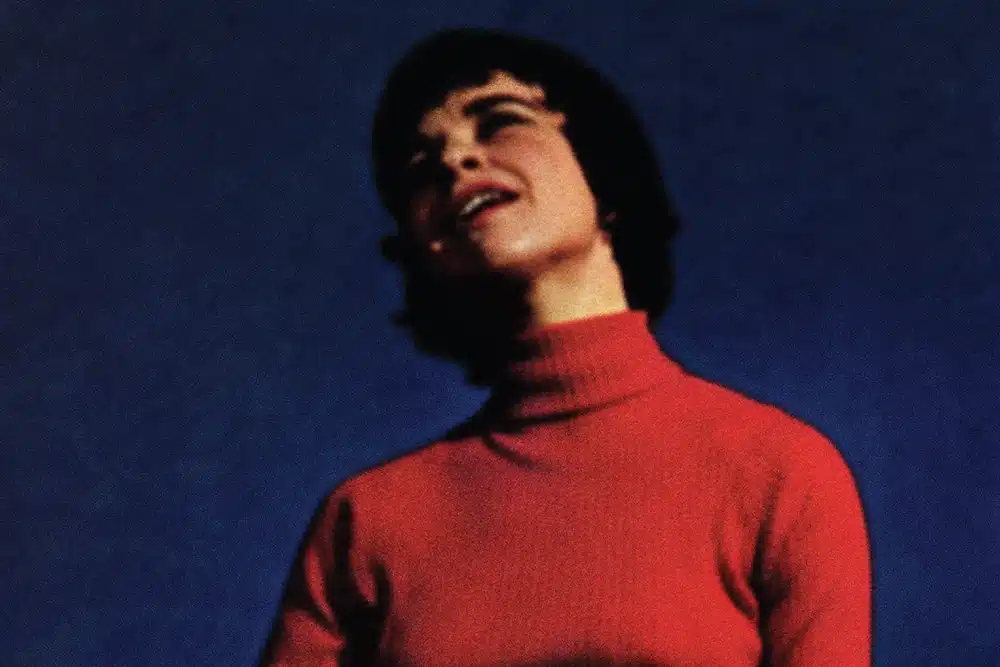
Jazz critic and historian Nat Hentoff served as head of A&R for the short-lived, but legendary Candid Records during the early 1960s. The story goes that one day he heard singer Nancy Harrow perform, signed her up, and produced her first album, Wild Women Don’t Have the Blues. The 1961 release was well received by critics and fans, and Harrow’s next recording came out in 1962 on the better-known Atlantic Records label. This album, too, garnered positive reviews.
However,= Harrow dropped out of the music scene for more than a dozen years to help raise a family. (She is the mother of two sons, including Damon Krukowski, a musician with the band Galaxie 500 and the duo Damon and Naomi.) The singer returned to music in 1975 and has since written and recorded several highly regarded works, including song cycles based on children’s books and literary narratives by Willa Cather, Nathaniel Hawthorne, and F. Scott Fitzgerald. Meanwhile, Harrow’s first album has been largely forgotten except by jazz connoisseurs and enthusiasts.
The Candid label has been revived. It recently remastered and re-released Wild Women Don’t Have the Blues in glorious stereo, along with solo pianist Jaki Byard’s wild and wacky Blues for Smoke and the smoky piano blues of Memphis Slim, USA from the same period. These records sound great. Their productions are clean and crisp. All three are recommended to fans of music from that era, but Harrow’s is the best of the lot.
The singer is in fine voice. She leads a crack band that features Buck Clayton on trumpet, Buddy Tate on tenor saxophone, Kenny Burrell on guitar, and Milt Hinton on bass, through a selection of mostly familiar tunes such as “On the Sunny Side of the Street” and “I’ve Got the World on a String”. This is a jazz record. Harrow’s not a pop vocalist, but an ensemble singer who puts her instrumentalists through the paces thanks to Hentoff’s supervision.
The album begins with the combo swinging through three-plus gorgeous minutes of “Take Me Back Baby” before Harrow opens her mouth. The mood lightens even as the volume gets louder when she starts to sing. The players don’t have to tone it down as Harrow croons over the top and takes charge. She knows how to stretch a note and when to keep silent in service to the song’s lyrics about a cheating lover who wants to get back in her baby’s arms. There is something coy and sophisticated expressed through the romantic articulations.
Wild Women Don’t Have the Blues would have seemed a throwback to earlier jazz styles in 1960 when it was recorded, a year of avant-garde releases that included John Coltrane‘s Giant Steps, Ornette Coleman’s Free Jazz, and Miles Davis‘ Sketches of Spain. After all, the title track is a cover of Ida Cox’s 1924 best-selling record. The passage of time serves modern ears well. Harrow’s vamping on tunes such as “I Don’t Know What Kind of Blues I’ve Got” and “Can’t We Be Friends” come off as timeless rather than dated. The high sonic quality of the record makes the 65-year-old recording sound fresh. Each individual player’s contribution can be distinctly heard. Burrell’s intricate guitar lines are especially noteworthy.
Yet it’s Harrow’s singing that ranges from slyly seductive to the strongly suggestive that deserves the most attention. The eight songs all concern love and romance with a knowing wink. The singer encourages one to listen as she confesses with the wisdom of one who has been around the block without getting jaded. When she sings lines such as “There’s two kinds of women / There’s two kinds of men,” she lets words linger to imply there’s more than she’s saying out loud. Love is more than two plus two.
Nancy Harrow understands that being a wild woman is just one way to gain respect and power in intimate relationships. The album ends with “Blues for Yesterday”, but she doesn’t want to go back. She reminisces, knowing today is a better place to be. Seven decades after the initial release, this record seems as timely as ever.

